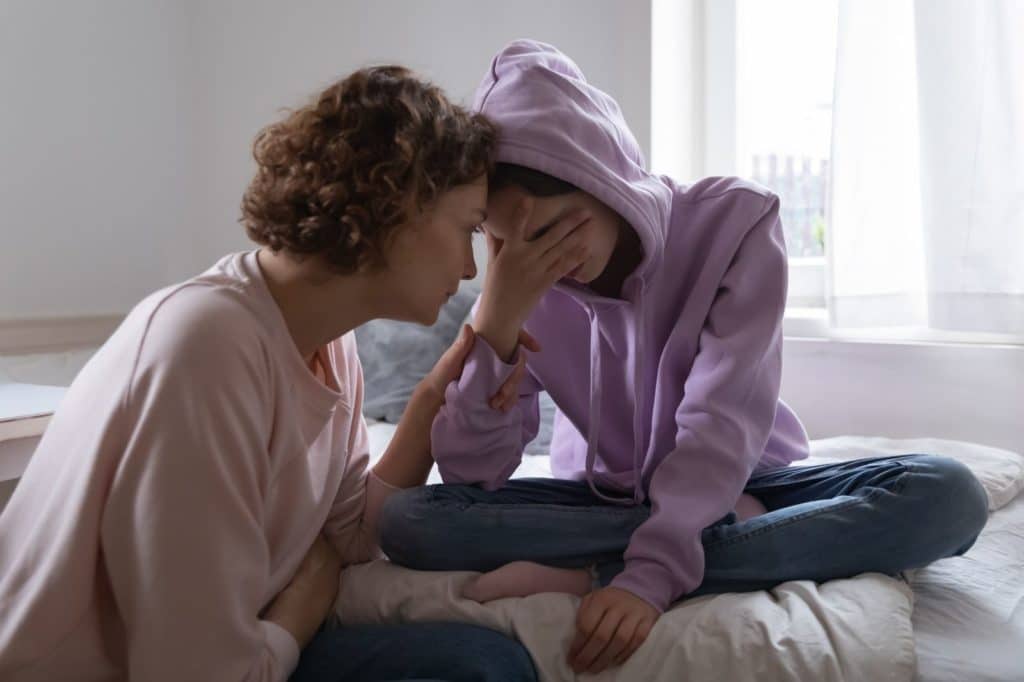If your child is showing signs that they might need mental health care, do you know where to go to find help? Parents who see behavioral changes in their child and worry there might be a problem are often not sure what to do next. For example, parents might observe that their child is:
- sleeping more than they used to
- more withdrawn, when they used to be socially active
- performing poorly in school, or losing interest in other activities
- talking about hurting themselves or others, or other dangerous or worrisome behaviors
Where can you go for help if your child who shows signs that he or she may be experiencing a mental illness? Beth Confer, Licensed Professional Council, offers some answers.
Important: If your child is in imminent danger of hurting themselves or others, take your child to the closest emergency room (ER). Ms. Confer notes that Clarity Child Guidance Center does offer emergency room treatment for children who experience a mental health crisis, but if they need physical medical help first, they need to go to a general hospital’s ER
For non-emergency situations, parents have a number of options available in the San Antonio area, depending on level of care that may be needed.
Any local psychiatric hospital that takes children will generally offer round-the-clock assessments at its admissions department. A clinician will evaluate the safety of the child, get to know the child and the family, and decide on the best level of care. Clarity Child Guidance Center is the only facility in San Antonio that is just for children. As a nonprofit, Clarity CGC accepts uninsured patients. Other San Antonio facilities that offer immediate assessments for children are:
- San Antonio Behavioral Health Center, for kids 12 and up, and adults
- Laurel Ridge Treatment Center, for kids 3-18 plus adults
- The Nix Health Behavioral Center, for children, adolescents and adults
During the initial assessment, the staff and family will work together to decide which of the following levels of care is in the best interest of the child.
Levels of Care in Children’s Mental Health
1. Outpatient counseling
When choosing the appropriate mental health care plan for a child, the least restrictive option is always preferable. For example, a teenage girl may be devastated because her boyfriend broke up with her. The assessor may decide that she would be best served by seeing a counselor on an outpatient basis, rather than a more intensive program.
2. Outpatient Psychiatric Care
The assessor may feel that something more serious is going on, such as a mood or thought disorder. She would then refer the child to an outpatient psychiatrist, a doctor who can assess the child further and decide if it is necessary to prescribe medications so that the child can function. Medication treatment should always be accompanied with therapy so that the child can build resiliency and learn to cope with the symptoms and her environment on her own.
3. Partial Hospitalization Programs
If counseling or psychiatric intervention can’t provide the help needed, a viable option could be a day treatment, hospital-based program, also called “partial hospitalization program.” This is designed for the child who is in between levels of care; needing more intensive therapy than an outpatient counselor can provide, but not a risk of harm to self or others. Day Treatment often involves individual, family and group therapy, typically over two to four weeks depending on the situation. The child attends the program during the day, and goes home with the parents each night.
4. Acute or Crisis Care
In some cases, there is real concern that the child may hurt themselves or someone else, in which case an acute inpatient stay is needed. This is typically a three- to five-day stay at the hospital, and is designed to stabilize the situation and assess the best follow-up plan for the child. Clarity CGC, San Antonio Behavioral HealthCare, Nix Health, and Laurel Ridge all have acute crisis care facilities.
5. Longer-term Inpatient Therapy
When a child or adolescent between the ages of 6 to 17 years of age has trouble functioning well outside of a structured and monitored environment, inpatient treatment or a residential treatment center (RTC) may be the answer. Such treatment can involve 24-hour care, a full schedule of individual and/or family or group therapies, and therapeutic activities in a secure, hospital-based setting.
There are two options for inpatient care in San Antonio: Clarity Child Guidance Center and Laurel Ridge. Also in Central Texas, San Marcos Treatment Center and Meridell Achievement Center might be options for RTC.
For more information on levels of care available in the San Antonio area, including information on chemical dependency and eating disorder treatments, watch the video below.
For hope and healing,
Mike Hannan
In case of a medical emergency, please call 911. For a child’s mental health emergency (ages 3 to 17), call Clarity Child Guidance Center at 210-582-6412. Our crisis service department accepts walk-ins 24/7. You can find directions to our campus here. Please do not hesitate to reach out to us. We are here to help!










